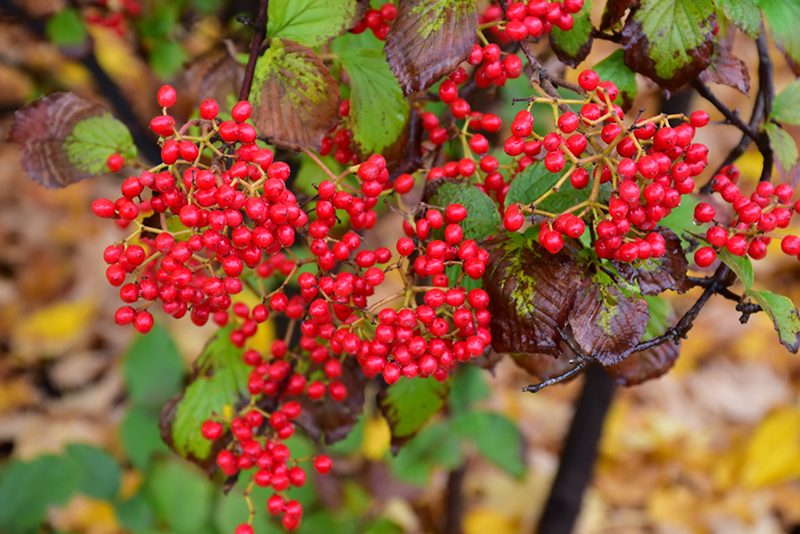>> Home
Asian Beauty Viburnum
Viburnum dilatatum 'Asian Beauty'
Height: 10 feet
Spread: 8 feet
Sunlight:
![]()
![]()
Hardiness Zone: 5a
Other Names: Linden Viburnum
Description:
An exquisite variety known for its profusion of fruit ; showy flat-topped clusters of creamy white flowers in spring followed by masses of brilliant red fruit in fall that persist into winter; yellow, orange, and red fall color; ideal for the shrub border
Ornamental Features
Asian Beauty Viburnum is bathed in stunning creamy white flat-top flowers at the ends of the branches in late spring. The cherry red fruits are held in abundance in spectacular clusters from late summer to late winter. It has dark green deciduous foliage. The textured oval leaves turn outstanding shades of yellow, orange and red in the fall.
Landscape Attributes
Asian Beauty Viburnum is a multi-stemmed deciduous shrub with a more or less rounded form. Its average texture blends into the landscape, but can be balanced by one or two finer or coarser trees or shrubs for an effective composition.
This is a relatively low maintenance shrub, and should only be pruned after flowering to avoid removing any of the current season's flowers. It is a good choice for attracting birds to your yard, but is not particularly attractive to deer who tend to leave it alone in favor of tastier treats. It has no significant negative characteristics.
Asian Beauty Viburnum is recommended for the following landscape applications;
- Accent
- Mass Planting
- Hedges/Screening
- General Garden Use
Planting & Growing
Asian Beauty Viburnum will grow to be about 10 feet tall at maturity, with a spread of 8 feet. It tends to fill out right to the ground and therefore doesn't necessarily require facer plants in front, and is suitable for planting under power lines. It grows at a slow rate, and under ideal conditions can be expected to live for 40 years or more. This variety requires a different selection of the same species growing nearby in order to set fruit.
This shrub does best in full sun to partial shade. It prefers to grow in average to moist conditions, and shouldn't be allowed to dry out. It is not particular as to soil type or pH. It is highly tolerant of urban pollution and will even thrive in inner city environments. Consider applying a thick mulch around the root zone in winter to protect it in exposed locations or colder microclimates. This is a selected variety of a species not originally from North America.
